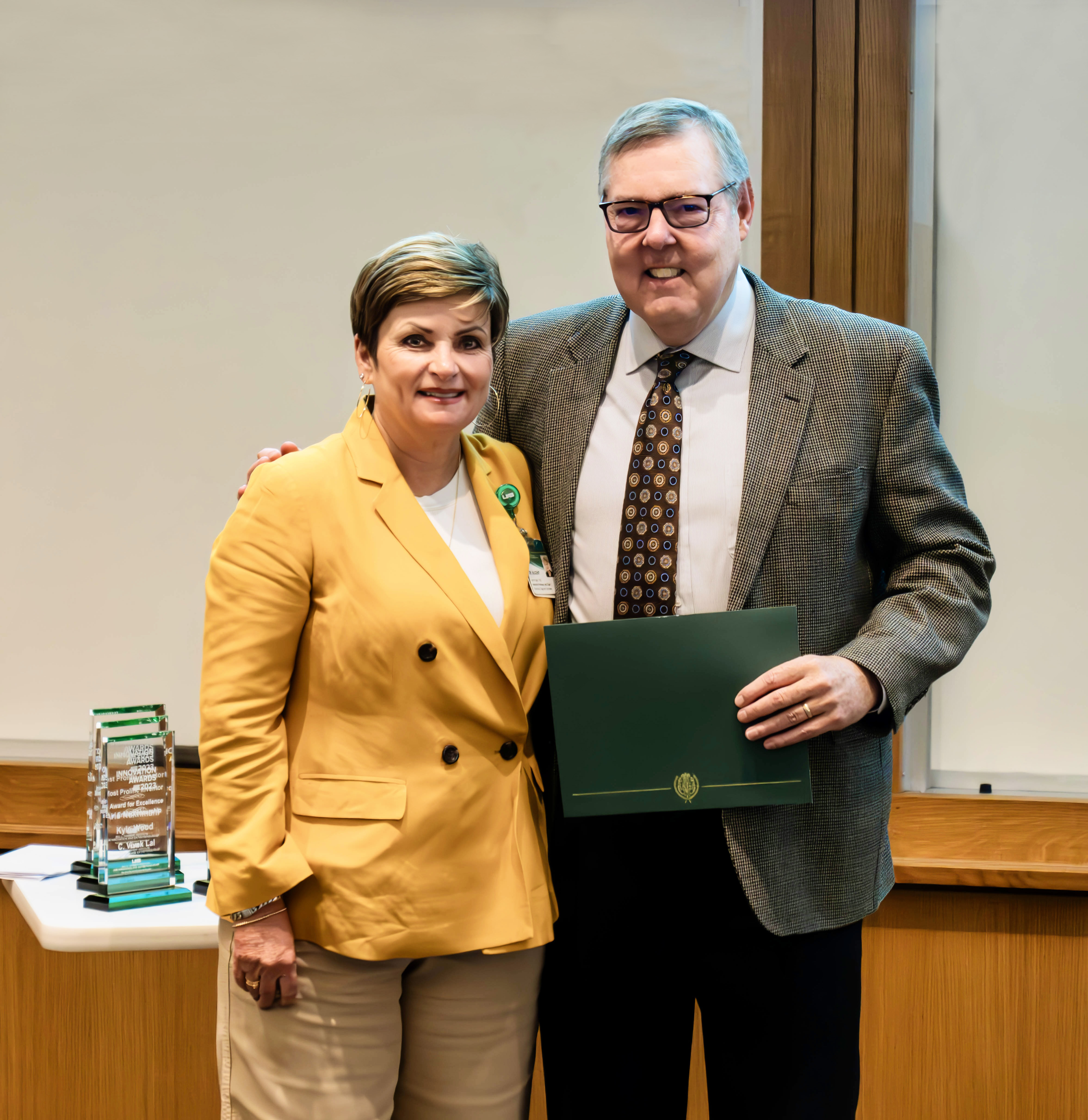 by Hannah Buckelew
by Hannah Buckelew
Peter Anderson, DVM, Ph.D., a professor in the UAB Department of Pathology’s Division of Molecular and Cellular Pathology, has been inducted into UAB’s chapter of the National Academy of Inventors. Anderson was recognized at an induction ceremony at the UAB Collat School of Business on October 13, 2023.
The National Academy of Inventors (NAI) honors the most accomplished inventors and patent holders nationwide, focusing on academic institutions and governmental and nonprofit research institutes. The NAI has more than 4,000 individual inventor members and Fellows spanning more than 250 institutions worldwide. UAB’s Bill L. Harbert Institute for Innovation and Entrepreneurship has long recognized NAI membership and officially established UAB’s NAI chapter in 2022 to recognize and encourage UAB’s community of inventors.
Anderson joined UAB’s Department of Pathology as an assistant professor in 1986 and has since had a distinguished career as a cardiovascular pathologist. He was involved in the development of the first FDA-approved balloon-expandable coronary artery stent at UAB and has continued studying atherosclerosis and coronary interventions. Anderson has nine patents, one of which led to the development of the paclitaxel-coated coronary stent that has been deployed in millions of patients worldwide to treat coronary artery disease. With proceeds from this patent, Anderson funded the Reverend Robert and Ruth Anderson Endowed Chair in Pathology, in honor of his parents.
Anderson was an early adopter of the Internet for sharing medical education materials. His website, the Pathology Instructional Resource (PEIR), provides free teaching cases, virtual microscopy slides, and more than 40,000 digital teaching images for nonprofit educational activities worldwide. The Harbert Institute of Innovation and Entrepreneurship has been instrumental in commercializing PEIR. Several publishers have licensed the resources for the development of health sciences instructional material.
“I am grateful to the Harbert Institute for their continued support and look forward to working with an incredible community of esteemed inventors here at UAB,” says Anderson.